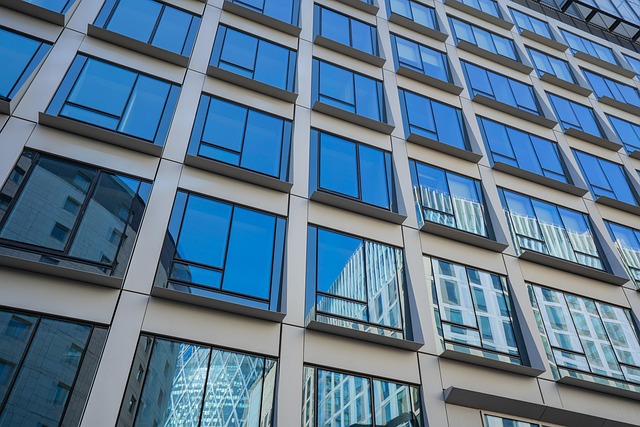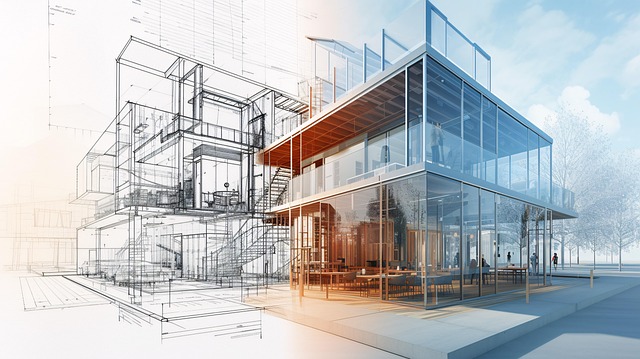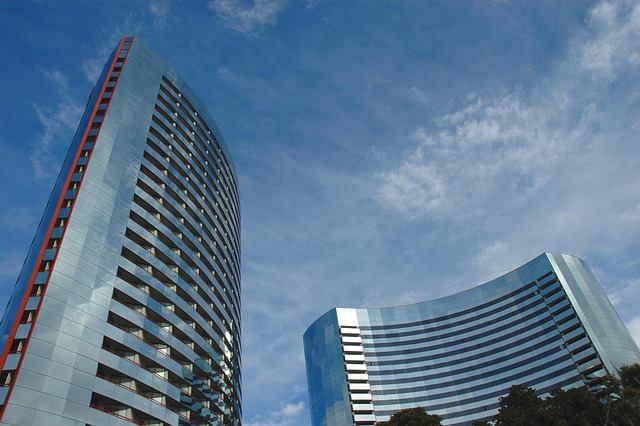SBA loans, like the 7(a) program, are key to financing commercial real estate in Denver due to their flexible terms and government backing. With lower interest rates and reduced collateral requirements compared to traditional loans, these options appeal to small business owners. However, securing an SBA loan involves strict eligibility criteria, including robust financial records, a solid business plan, and property viability. Various SBA programs cater to different needs: 7(a) for general expenses, 504 for long-term fixed assets, and 503 for equipment purchases. Proper preparation is crucial, with comprehensive documentation needed for a straightforward application process. Despite potential challenges, SBA financing provides competitive advantages in Denver's vibrant commercial real estate market.
“Unleash your business potential with SBA loans, a powerful financial tool tailored for small businesses. In this comprehensive guide, we demystify SBA financing options, focusing on Denver’s vibrant market. From understanding the U.S. Small Business Administration’s (SBA) role to navigating the application process, we cover it all. Discover how SBA loans, specifically designed for commercial real estate in Denver, offer unique benefits while addressing challenges. Whether you’re a seasoned entrepreneur or a startup, this article equips you with insights to make informed decisions.”
- Understanding SBA Loans: A Brief Overview
- Eligibility Criteria for Commercial Real Estate Loans in Denver
- Types of SBA Loans for Small Businesses
- The Application Process: Step-by-Step Guide
- Benefits and Challenges of SBA Financing Options
Understanding SBA Loans: A Brief Overview

SBA loans, or Small Business Administration loans, are a crucial component in the financial landscape for entrepreneurs and small businesses. These loans are backed by the U.S. government, specifically by the SBA, which guarantees a portion of the loan amount to lenders. This guarantee makes it easier for banks and credit unions to offer financing to eligible small businesses, including those seeking commercial real estate loans in Denver or any other location.
For commercial real estate loans, the SBA offers programs like the 7(a) loan, which can be used to purchase or renovate property, providing a viable alternative to traditional bank lending. These loans are particularly attractive to business owners due to their flexible terms, lower interest rates, and reduced collateral requirements compared to conventional loans. Understanding these benefits can empower Denver-based entrepreneurs to explore SBA-backed financing options for their commercial real estate endeavors.
Eligibility Criteria for Commercial Real Estate Loans in Denver

In Denver, individuals and businesses looking for a commercial real estate loan should meet specific eligibility criteria set by lenders. Firstly, borrowers must demonstrate a strong credit history and a stable financial position. Lenders typically require a minimum credit score of 650 or higher for individual borrowers and robust financial statements for business owners. This includes proof of income, assets, and any existing debt obligations.
Additionally, the property itself plays a crucial role in eligibility. Commercial real estate loans in Denver are often secured by the physical property being purchased or renovated. Lenders will assess the property’s value, location, zoning, and potential for generating income to determine its viability as collateral. A solid business plan and projected financial performance are also essential, showcasing the borrower’s ability to repay the loan and the property’s potential to generate a positive cash flow.
Types of SBA Loans for Small Businesses

Small businesses in Denver, CO, have access to various SBA (Small Business Administration) loan programs tailored to meet different financial needs. One popular option is the 7(a) loan program, which provides flexible financing for both new and existing businesses. These loans can be used for a wide range of purposes, including purchasing or renovating commercial real estate in Denver, funding inventory, equipment purchases, working capital, and more. The SBA guarantees up to 85% of these loans, making them attractive to lenders.
Another specialized loan type is the SBA 504 loan, designed to facilitate the acquisition and renovation of long-term fixed assets like commercial real estate. This program combines a first mortgage from a bank with a second loan guaranteed by the SBA, offering lower interest rates and longer repayment terms. For businesses seeking funds specifically for equipment or machinery purchases, the SBA 503 loan is available, providing up to $5 million in financing for such acquisitions.
The Application Process: Step-by-Step Guide

Applying for an SBA (Small Business Administration) loan in Denver for commercial real estate can be a straightforward process with the right preparation. Here’s a step-by-step guide to help you navigate it:
1. Determine Eligibility: Before applying, ensure your business and project align with SBA criteria. These loans are designed for small businesses, typically defined as those with 500 or fewer employees. For commercial real estate, the property must be used primarily for business purposes, and the loan amount cannot exceed a certain percentage of the property’s value, depending on the type of loan.
2. Gather Required Documents: Prepare comprehensive documentation to support your application. This usually includes business financial statements, personal tax returns, credit reports, detailed business plans, and appraisals for the real estate being purchased or refinanced. For commercial real estate loans, you may also need to provide information about the property’s use, tenants, and potential income streams.
Benefits and Challenges of SBA Financing Options

SBA financing options offer a range of benefits for businesses, especially in the competitive market of commercial real estate loans Denver. One significant advantage is the government-backed insurance that protects lenders, reducing the risk and often resulting in more favorable terms for borrowers. This can make it easier for small businesses to secure funding, particularly in high-value property acquisitions or expansions. The SBA also provides access to technical assistance and counseling, helping entrepreneurs navigate the loan application process and plan for future growth.
However, challenges exist. The approval process can be lengthy, requiring thorough documentation and strict eligibility criteria. For commercial real estate loans Denver, where competition is fierce, securing an SBA loan might demand a competitive edge in terms of business performance, credit history, or the uniqueness of the property being acquired. Additionally, interest rates may vary, and while they are often attractive, they can fluctuate based on market conditions and economic indicators, potentially impacting long-term financial plans.
SBA loans have proven to be a valuable financing option for small businesses seeking to secure a commercial real estate loan in Denver. By understanding the various types of SBA loans, eligibility criteria, and the application process, entrepreneurs can navigate this supportive financial landscape. While there are benefits such as lower interest rates and guaranteed loans, businesses should also be aware of potential challenges like strict requirements and lengthy approval processes. With careful consideration and preparation, SBA financing can open doors to secure real estate investments and foster growth in Denver’s thriving business community.
